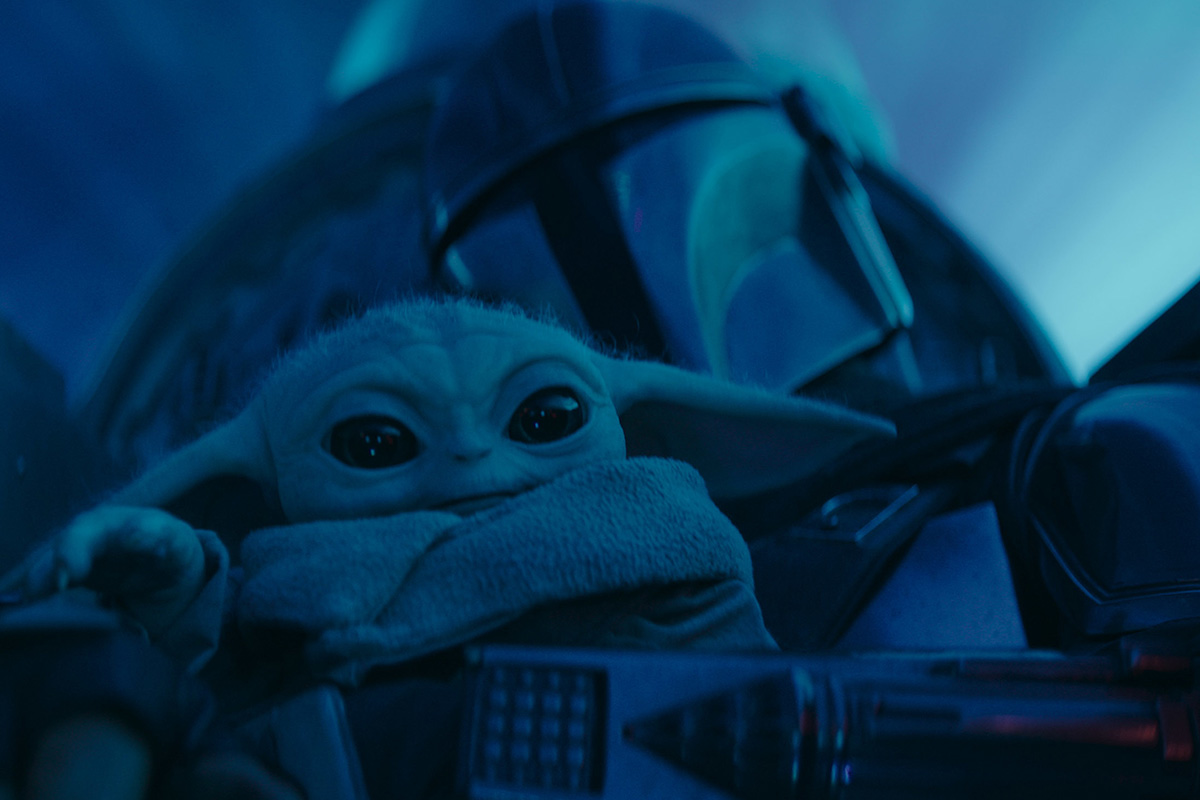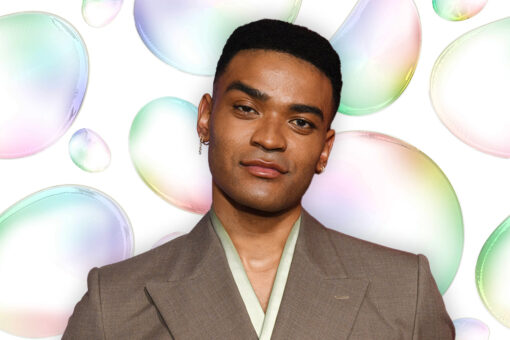After two seasons (three if you count “The Book of Boba Fett,” which nobody ought to), I thought I knew what to expect from another round of “The Mandalorian.” I was revved up and ready for droids, zippy space ships, Grogu being cute, soulful Dad Energy from Pedro Pascal’s titular character and sweeping vista shots.
What I was not expecting was a heaping helping of Jewish subtext.
For those who’ve followed the franchise from the original trilogy, the “Star Wars” universe has always engaged with religious subtext and symbolism. The Jedi, with their devotion to the Force above all else, vows of non-attachment (and of course the robes they wear) have frequently drawn comparison to Buddhist and Catholic monastic orders. However, the franchise’s engagement with Judaism and Jewish subtext has been minimal and dubious at best — and the less said about the prequels’ Watto, the better. With the latest offerings in “The Mandalorian,” that all changes.
The Mandalorians are an order, or possibly tribe, of warriors, hailing from the planet Mandalore, which was destroyed, leading to a Mandalorian diaspora. Unlike the Jedi, Mandalorians are not celibate, nor do they shun emotional bonds and attachments, and most are born into their Mandalorian identity — although some, including Din Djarin, the series’ protagonist, convert.
While the first two seasons introduced audiences to a few aspects of Mandalorian culture, including the rites teenage Mandalorians take to become full members of the community and the role of the sacred head coverings they must never remove (at least according to Mandalorian traditionalists — we briefly meet Reform Mandalorians who only cover their heads for specific, ceremonial occasions), season three goes further. In addition to further exploring the schism between Reform and Orthodox Mandalorians, and the struggles faced by Mandalorian communities in the diaspora, we learn about the details of Mandalorian conversion and purification rituals. These involve immersion in a body of living water, and the Mandalorians of the diaspora have struggled with questions of how to repent when the sacred place of repentance is no longer accessible.
Is this all starting to sound familiar?
The Living Waters of Mandalore sound suspiciously like a mikveh, the naturally-derived pool of still water used for purification and conversion in Judaism. This wouldn’t be the first mikveh in a major pop culture franchise (“Orange Is the New Black” featured a major character’s conversion from prison), but definitely the first use of one in space. As for the Mandalorians’ debate over whether to wear their helmets at all times in front of others, or only for battle and ceremonial purposes, the echoes of questions about the role of kippot and married women’s head coverings aren’t hard to see. And given that modern Judaism has grappled with how to survive as a faith after the destruction of the Temple for millennia, it’s easy to sympathize with the Mandalorian diaspora’s plight at the (assumed) destruction of Mandalore.
Episode three of season three, “Chapter 19: The Convert,” is notably light on Mandalorian content, but what we do see drives this point home all the further. It’s not until the end of the episode that we learn who the titular convert is. While one might assume it’s Din Djarin, having redeemed himself from ritual impurities through bathing in the living waters of Mandalore (again, does this sound familiar?) it’s actually Bo-Katan, the last member of an ancient Mandalorian royal family.
While Bo-Katan has never considered herself anything but Mandalorian, and Din Djarin has been inclined to agree with her, she’s a Reform Mandalorian, and part of a community that removes their helmets regularly, although they’ve recently scattered over a political dispute. The Mandalorian Orthodoxy, including Din’s Armorer, consider her an apostate… until they find out she’s bathed in the living waters, too. And, for one reason or another, she hasn’t removed her helmet since.
From what we can tell, one of the big challenges of the season as it continues will be how Bo-Katan, and possibly Din Djarin, deal with the Mandalorian Orthodox community they are now living among. Anyone who has ever hosted or even attended a break-fast or seder for attendees ranging from Reform to Orthodox Jews can guess that this won’t be easy sailing. That’s to say nothing of the secondary conflict that the Mandalorian diaspora faces: whether a return to Mandalore is possible, and if so, whether it’s desirable.
Perhaps it shouldn’t come as a surprise that “The Mandalorian” is embracing Jewish themes. Writer and showrunner Jon Favreau may be a Hebrew school dropout, but he did return following his mother’s death and celebrated his bar mitzvah. And it’s surely no coincidence that his production company, which has produced both “The Mandalorian” and “The Book of Boba Fett,” is called Golem Creations, Ltd. Favreau says he named his company after the potential of technology and how, like a golem, it can be used for good or evil depending on who wields it.
So far there’s no sign of a Mandalorian golem making an appearance, let alone any talk of Mandalorian culinary traditions (perhaps there’s an Ashkenazi/Sephardic split on that one?). But with the show’s wild popularity, and no signs of it stopping, we can only hope to learn more about the Mandalorians, who just might be Jews: In Space!



